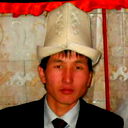Ex. 3. Put the verbs into the required tense form.
1. Israel Railways (to order – Present Perfect Active) three four-car doubledeck trains from Bombardier Transportation at a cost of Euros 16 million.
The air-conditioned trains comprising a power car and three trailers (to
introduce – Future Simple Passive) in the Tel Aviv area.
2. The train (to stop – Past Simple Active) at all the stations, and long before
we (to get – Past Simple Active) to London, every seat (to occupy – Past
Perfect Passive) and people (to stand – Past Continuous Active) in the
corridors.
3. It (to calculate – Present Perfect Passive) that East Japan Railway
Company (to sell – Present Simple Active) 1,000 ton of tickets annually.
Now, these tickets (to collect and to re-use – Present Continuous Passive)
in the manufacture of cardboard and toilet paper.
45
4. When we (to come – Past Simple Active) to the station, the train (to
arrive / already – Past Perfect Active) and the passengers (to hurry –
Past Continuous Active) to take their seats in the carriages.
5. China (to have – Present Simple Active) the world's sixth longest railroad
system. By the mid-1970s, all of its major manufacturing centers and
provincial capitals (to link – Past Perfect Passive) by railway network.
Railway construction (to begin – Past Simple Active) in China late in the
19th century. By the beginning of the World War II, more than 25,000 km of
track (to lay – Past Perfect Passive) down, mainly in the eastern and
northeastern parts of the country. During the war, many railway lines (to
destroy – Past Simple Passive). Rail construction (to resume – Past
Simple Passive) after 1949 and it (to continue – Present Perfect Active)
ever since.
6. The European Bank for Reconstruction and Development (to make – Present
Perfect Active) a loan (ссуда) of $US120,000 to the Russian Ministry of
Railways for the railway rehabilitation project.
7. New Zealand's most serious rail disaster (to happen – Past Simple Active)
on Christmas Eve 1953. The railway bridge at Tangiwai (to collapse – Past
Simple Active) when a Wellington-Auckland express passenger train (to
cross – Past Continuous Active) it. 151 lives (to lose – Past Simple
Passive).
8. The Blue Train (to run – Present Perfect Active) between Cape Town and
Pretoria, South Africa, since 1939. It (to derive – Present Simple Active) its
name from its blue locomotives, railroad cars, and leather seats.
Домашние задания: Иностранные языки
Друзья, помогите пожалуйста с английским языком
Ex. 3. Put the verbs into the required tense form.
1. Israel Railways (HAVE ORDERED – Present Perfect Active) three four-car doubledeck trains from Bombardier Transportation at a cost of Euros 16 million.
The air-conditioned trains comprising a power car and three trailers (WILL BE INTRODUCED – Future Simple Passive) in the Tel Aviv area.
2. The train (STOPPED – Past Simple Active) at all the stations, and long before
we (GOT – Past Simple Active) to London, every seat (HAD BEEN OCCUPIED – Past
Perfect Passive) and people (WERE STANDING – Past Continuous Active) in the
corridors.
3. It (HAS BEEN CALCULATED – Present Perfect Passive) that East Japan Railway
Company (SELLS – Present Simple Active) 1,000 ton of tickets annually.
Now, these tickets (ARE BEING COLLECTED and REUSED – Present Continuous Passive)
in the manufacture of cardboard and toilet paper.
45
4. When we (CAME – Past Simple Active) to the station, the train (HAD already ARRIVED – Past Perfect Active) and the passengers (WERE HURRYNG –
Past Continuous Active) to take their seats in the carriages.
5. China (HAS – Present Simple Active) the world's sixth longest railroad
system. By the mid-1970s, all of its major manufacturing centers and
provincial capitals (HAD BEEN LINKED – Past Perfect Passive) by railway network.
Railway construction (BEGAN – Past Simple Active) in China late in the
19th century. By the beginning of the World War II, more than 25,000 km of
track (HAD BEEN LAID – Past Perfect Passive) down, mainly in the eastern and
northeastern parts of the country. During the war, many railway lines (WERE DESTROYED – Past Simple Passive). Rail construction (WAS RESUMED– Past
Simple Passive) after 1949 and it (HAS CONTINUED – Present Perfect Active)
ever since.
6. The European Bank for Reconstruction and Development (HAS MADE – Present
Perfect Active) a loan (ссуда) of $US120,000 to the Russian Ministry of
Railways for the railway rehabilitation project.
7. New Zealand's most serious rail disaster (HAPPENED – Past Simple Active)
on Christmas Eve 1953. The railway bridge at Tangiwai ( collapseD – Past
Simple Active) when a Wellington-Auckland express passenger train (was
crossing – Past Continuous Active) it. 151 lives (were lost – Past Simple
Passive).
8. The Blue Train (HAS RUN – Present Perfect Active) between Cape Town and
Pretoria, South Africa, since 1939. It ( deriveS – Present Simple Active) its
name from its blue locomotives, railroad cars, and leather seats.
1. Israel Railways (HAVE ORDERED – Present Perfect Active) three four-car doubledeck trains from Bombardier Transportation at a cost of Euros 16 million.
The air-conditioned trains comprising a power car and three trailers (WILL BE INTRODUCED – Future Simple Passive) in the Tel Aviv area.
2. The train (STOPPED – Past Simple Active) at all the stations, and long before
we (GOT – Past Simple Active) to London, every seat (HAD BEEN OCCUPIED – Past
Perfect Passive) and people (WERE STANDING – Past Continuous Active) in the
corridors.
3. It (HAS BEEN CALCULATED – Present Perfect Passive) that East Japan Railway
Company (SELLS – Present Simple Active) 1,000 ton of tickets annually.
Now, these tickets (ARE BEING COLLECTED and REUSED – Present Continuous Passive)
in the manufacture of cardboard and toilet paper.
45
4. When we (CAME – Past Simple Active) to the station, the train (HAD already ARRIVED – Past Perfect Active) and the passengers (WERE HURRYNG –
Past Continuous Active) to take their seats in the carriages.
5. China (HAS – Present Simple Active) the world's sixth longest railroad
system. By the mid-1970s, all of its major manufacturing centers and
provincial capitals (HAD BEEN LINKED – Past Perfect Passive) by railway network.
Railway construction (BEGAN – Past Simple Active) in China late in the
19th century. By the beginning of the World War II, more than 25,000 km of
track (HAD BEEN LAID – Past Perfect Passive) down, mainly in the eastern and
northeastern parts of the country. During the war, many railway lines (WERE DESTROYED – Past Simple Passive). Rail construction (WAS RESUMED– Past
Simple Passive) after 1949 and it (HAS CONTINUED – Present Perfect Active)
ever since.
6. The European Bank for Reconstruction and Development (HAS MADE – Present
Perfect Active) a loan (ссуда) of $US120,000 to the Russian Ministry of
Railways for the railway rehabilitation project.
7. New Zealand's most serious rail disaster (HAPPENED – Past Simple Active)
on Christmas Eve 1953. The railway bridge at Tangiwai ( collapseD – Past
Simple Active) when a Wellington-Auckland express passenger train (was
crossing – Past Continuous Active) it. 151 lives (were lost – Past Simple
Passive).
8. The Blue Train (HAS RUN – Present Perfect Active) between Cape Town and
Pretoria, South Africa, since 1939. It ( deriveS – Present Simple Active) its
name from its blue locomotives, railroad cars, and leather seats.
Похожие вопросы
- Помогите пожалуйста решить английский язык 1 курс
- Помогите пожалуйста с английским языком! Прошу!
- Помогите пожалуйста с английским языком
- ПОМОГИТЕ ПОЖАЛУЙСТА С АНГЛИЙСКИМ ЯЗЫКОМ!!!
- Помогите, пожалуйста с Английским языком
- Помогите пожалуйста с Английским языком
- Помогите, пожалуйста, с английским языком. Необходимо открыть скобки
- Помогите пожалуйста с английским языком
- Помогите пожалуйста с английским языком (тест).
- Помогите пожалуйста по английскому языку.

